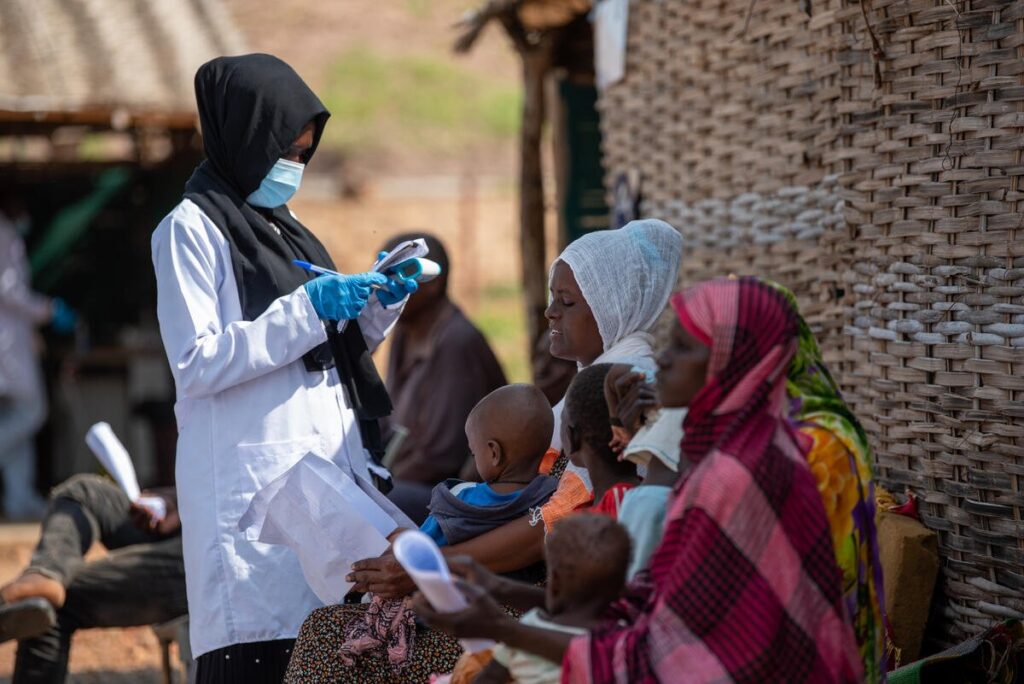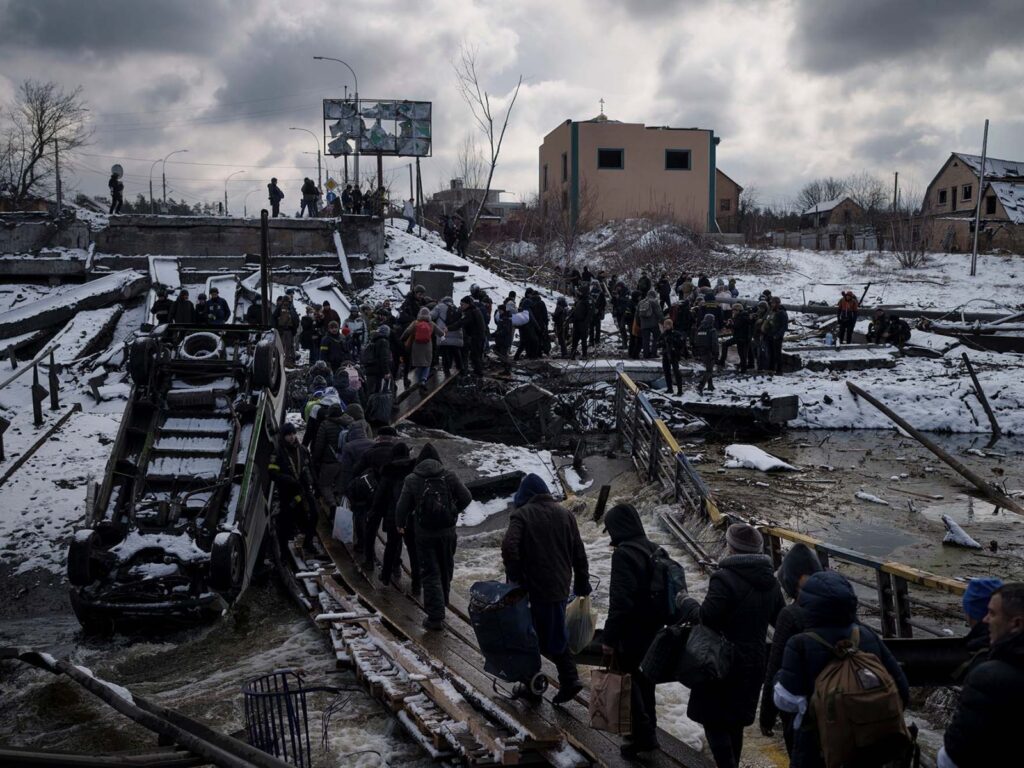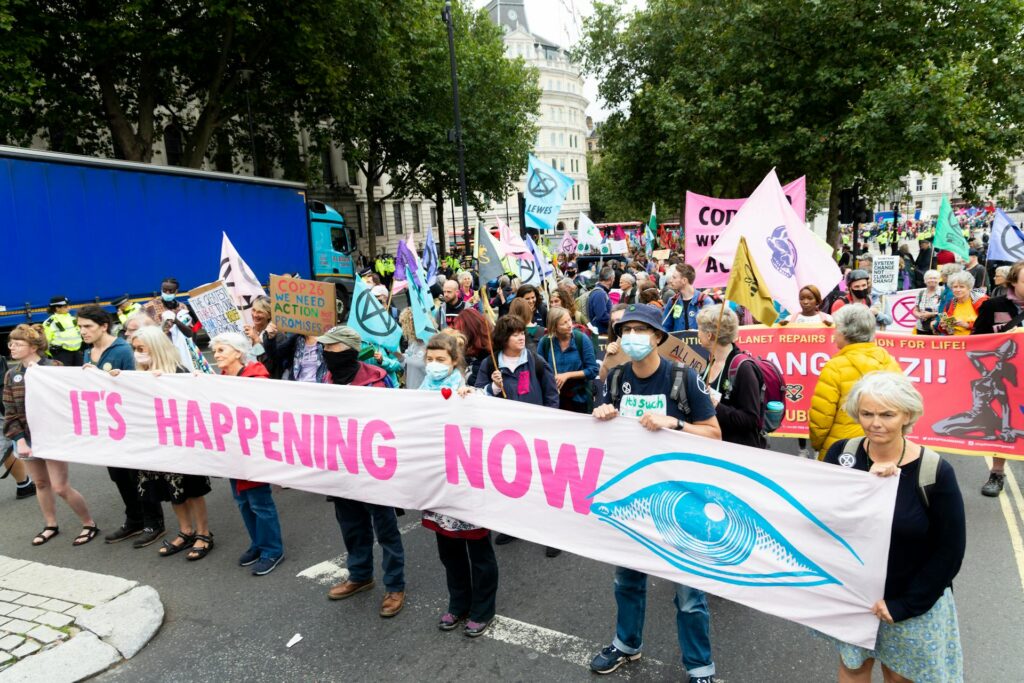
War and conflict are devastating events that leave deep scars, not just on buildings and landscapes, but also on the health and well-being of people caught in the crossfire. The impacts of war reach far beyond the battlefield, affecting everything from access to clean water and food to mental health and the spread of disease. In this article, we’ll explore the impact of war and conflict on global health.
The Immediate Impact of War on Health
The immediate aftermath of war is often a time of great chaos and suffering. Here are some of the most direct ways conflict can impact health:
- Injuries and casualties: Warfare inevitably leads to violence and casualties, both military and civilian. People are injured or killed by weapons, bombs, and explosions. Medical facilities are often overwhelmed, and access to proper care can be severely limited.
- Displacement and refugee crises: War often forces people to flee their homes, becoming refugees or internally displaced persons. This displacement disrupts access to healthcare, food, and clean water, making people more vulnerable to illness and malnutrition.
- Breakdown of infrastructure: War can damage or destroy essential infrastructure, like water treatment plants, sanitation systems, and hospitals. This lack of basic infrastructure can lead to outbreaks of waterborne diseases and other illnesses.
Also Read: Understanding Micronutrient Deficiencies and Their Impact on Your Health
- Shortage of medical supplies and personnel: War zones often experience shortages of medical supplies, medications, and healthcare professionals. This makes it difficult to treat injuries and address existing health problems.

The Long-Term Consequences of War on Health
The effects of war on health can last long after the fighting stops. Here are some of the long-term consequences to consider:
- Mental health issues: War can have a devastating impact on the mental health of individuals and communities. Exposure to violence, trauma, and loss can lead to anxiety, depression, and post-traumatic stress disorder (PTSD).
- Increased risk of chronic diseases: The stress and hardships of war can weaken the immune system and increase the risk of chronic diseases like heart disease, diabetes, and some cancers.
- Generational effects: The health impacts of war can extend to future generations. Children exposed to violence and trauma can experience long-term developmental problems and mental health issues.
- Disruption of healthcare systems: The damage to infrastructure and the loss of healthcare professionals during war can take years to rebuild. This can leave entire healthcare systems weakened and struggling to meet the needs of the population.

Beyond Physical Health: The Social Determinants of Health
War doesn’t just affect physical health; it also disrupts the social determinants of health, which are the social and economic factors that influence health outcomes. Here’s how war can impact these social determinants:
- Poverty: War can destroy livelihoods and push people into poverty. This lack of resources makes it harder to afford food, healthcare, and education, all of which are essential for good health.
- Education: War can disrupt education systems, leaving children without access to schooling. Education is crucial for promoting good health practices and developing skills for future employment and well-being.
- Gender inequality: War can exacerbate gender inequality. Women and girls are often more vulnerable to violence, sexual assault, and exploitation during conflict. They may also face greater challenges accessing healthcare and education.
- Environmental damage: War can pollute water sources, damage land, and destroy ecosystems. This environmental damage can have long-term consequences for health and well-being.

What Can Be Done to Address the Health Impacts of War?
The health impacts of war are a complex and global issue. Here are some things that can be done to address this problem:
- Preventing war: The best way to address the health impacts of war is to prevent war itself. This requires international cooperation, diplomacy, and addressing the root causes of conflict.
- Supporting humanitarian organizations: Organizations like the Red Cross, World Health Organization (WHO), and Doctors Without Borders provide vital healthcare services in war zones. Supporting these organizations can help ensure people receive the care they need.
- Investing in post-conflict reconstruction: After a war, rebuilding healthcare infrastructure and training healthcare professionals is crucial. Investing in post-conflict reconstruction can help strengthen health systems and improve health outcomes for the long term.
- Advocating for peace: We all have a role to play in promoting peace and understanding. Speaking out against war and supporting peaceful solutions to conflict can help create a healthier world for everyone.
Also Read: 10 Essential Survival Skills to Make You a Master of Your Environment
Working Together for a Healthier Future
War is a tragedy that has devastating consequences for health and well-being. By understanding the impacts of war on health, supporting organizations that provide aid, and advocating for peace, we can work together to create a healthier future for everyone.
Here are some resources for further information:
- The World Health Organization (WHO): Health Emergencies https://www.who.int/emergencies/overview
- The United Nations Office for the Coordination of Humanitarian Affairs (OCHA): Health in Emergencies https://www.unocha.org/
- The International Committee of the Red Cross (ICRC): Health https://www.icrc.org/en
Individual Actions You Can Take
While the issue of war and conflict may seem overwhelming, there are steps you can take to make a difference:
- Stay informed: Educate yourself about ongoing conflicts and the humanitarian efforts addressing them.
- Support organizations working for peace: Donate to or volunteer your time with organizations working to prevent war and promote peacebuilding initiatives.
- Advocate for peace: Speak out against war and violence in your community and on social media. You can also contact your elected officials and urge them to support peaceful solutions to conflict.
- Support sustainable practices: Choose products and services from companies committed to ethical practices and minimizing environmental damage. This can indirectly help address some of the root causes of conflict related to resource scarcity.
Remember, even small actions can contribute to a more peaceful and healthy world!
Final Thoughts
War and conflict are complex issues with far-reaching consequences. The impact on global health is significant, affecting people’s physical and mental well-being for generations. However, by working together, supporting humanitarian efforts, and advocating for peace, we can create a future where health and well-being are not casualties of war.
Let’s all play a role in building a world where peace prevails and everyone has the opportunity to live a healthy life.
FAQs: What are The Impact of War and Conflict on Global Health?
War and conflict have devastating consequences that extend far beyond battlefields. Here are some frequently asked questions to shed light on how war impacts global health:
- How does war affect people’s immediate health?
The immediate aftermath of war is often chaotic. People are injured by weapons and explosions, overwhelming medical facilities. Displacement due to conflict disrupts access to clean water, food, and healthcare, making people more vulnerable to illness and malnutrition. Additionally, war can damage infrastructure like water treatment plants and sanitation systems, leading to outbreaks of waterborne diseases.
- What are some long-term health consequences of war?
The scars of war can last for generations. Exposure to violence and trauma can lead to mental health issues like anxiety, depression, and PTSD. The stress and hardships of war can also weaken the immune system and increase the risk of chronic diseases like heart disease, diabetes, and some cancers. Children exposed to war can experience long-term developmental problems and mental health issues.
- Does war just affect physical health?
War disrupts the social determinants of health, the social and economic factors influencing health outcomes. Conflict can push people into poverty, limiting access to essentials like food and healthcare. War can also disrupt education systems, hindering development of skills needed for future well-being. Women and girls often face increased gender inequality during war, making them more vulnerable to violence and exploitation. Environmental damage caused by war can have long-term consequences for health.
- Isn’t war just a problem for people in war zones?
The health impacts of war can be felt globally. Disrupted supply chains and damaged infrastructure can lead to food shortages and price hikes, impacting people far from conflict zones. Additionally, war can create refugee crises, placing a strain on healthcare systems in neighboring countries.
- What can be done to address the health impacts of war?
The best solution is to prevent war in the first place. This requires international cooperation, diplomacy, and addressing the root causes of conflict. Supporting humanitarian organizations like the Red Cross, WHO, and Doctors Without Borders helps ensure people in war zones receive healthcare. Investing in post-conflict reconstruction, rebuilding infrastructure and training healthcare professionals, is crucial for long-term health improvements.
- How can I, as an individual, make a difference?
Stay informed about ongoing conflicts and the humanitarian efforts addressing them. Support organizations working for peace and donate or volunteer your time. Advocate for peace by speaking out against war and violence in your community and online. You can also contact your elected officials and urge them to support peaceful solutions to conflict. Supporting sustainable practices by choosing products from companies committed to ethical practices can indirectly address resource scarcity, a potential root cause of conflict.
- Are there any resources where I can learn more?
Yes! Here are some reputable organizations providing information and resources:
- The World Health Organization (WHO): Health Emergencies https://www.who.int/emergencies/overview
- The United Nations Office for the Coordination of Humanitarian Affairs (OCHA): Health in Emergencies https://www.unocha.org/
- The International Committee of the Red Cross (ICRC): Health https://www.icrc.org/en
- Isn’t war inevitable? Can’t we just accept it?
War is not inevitable. Throughout history, there have been many periods of peace. By working together, promoting peacebuilding initiatives, and advocating for peaceful solutions to conflict, we can create a world where war is not the norm.
- What role does mental health play in war and conflict?
Mental health is deeply affected by war. Exposure to violence, trauma, and loss can lead to anxiety, depression, and PTSD. Children are particularly vulnerable to these mental health issues. Providing mental health support for people affected by war is crucial for healing and recovery.
- Why is it important to talk about the health impacts of war?
Raising awareness about the health impacts of war helps us understand the true cost of conflict. By highlighting the human suffering caused by war, we can encourage a global commitment to peace and the protection of health for all.

